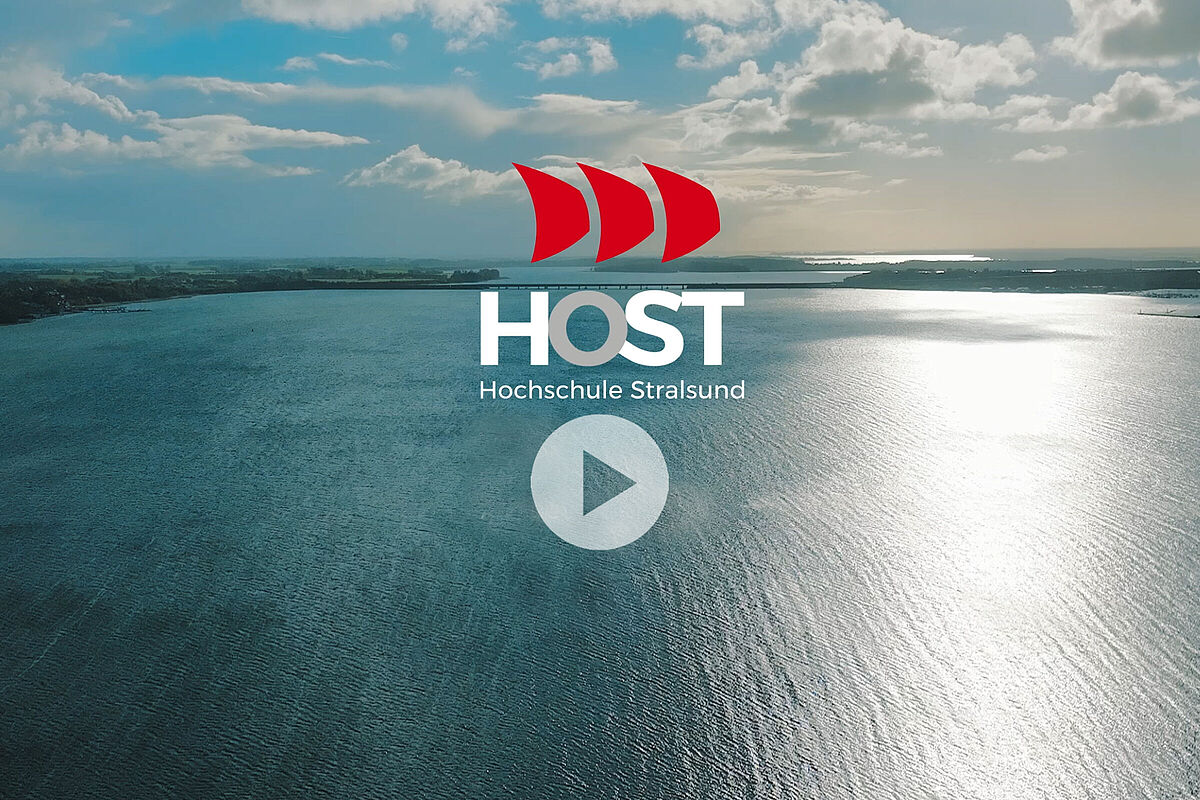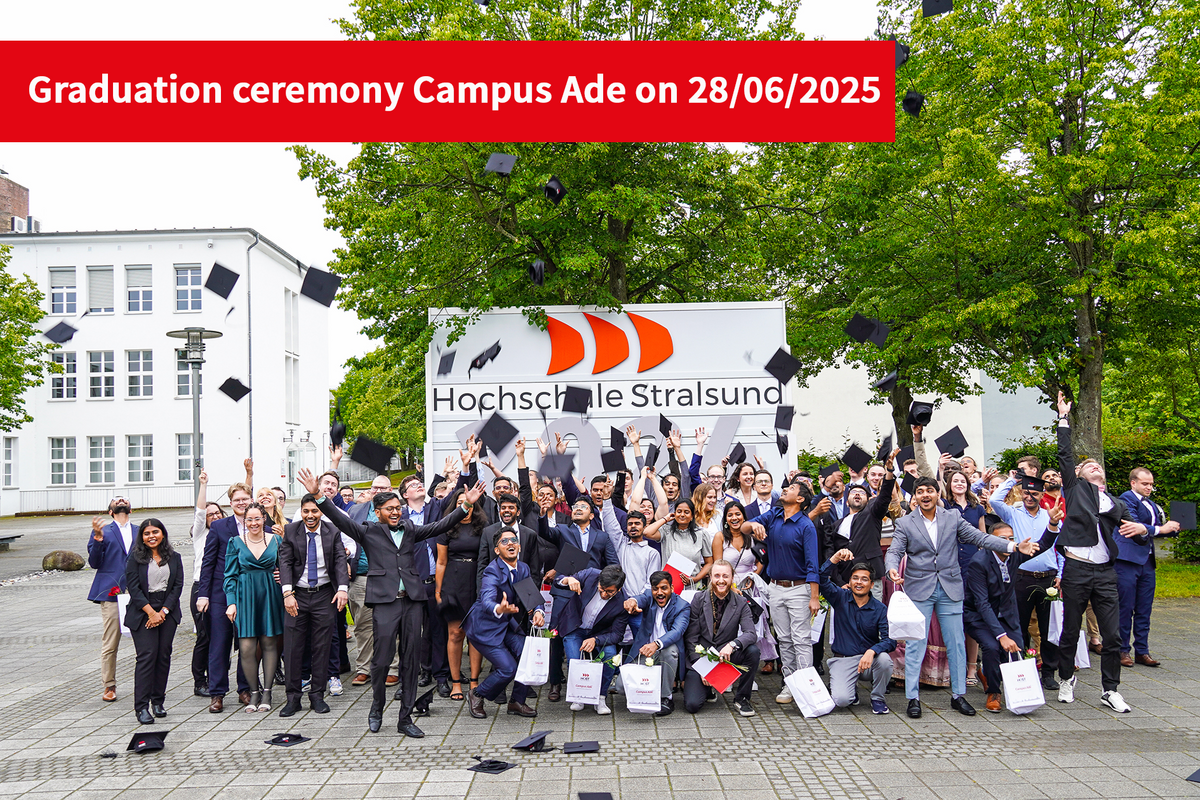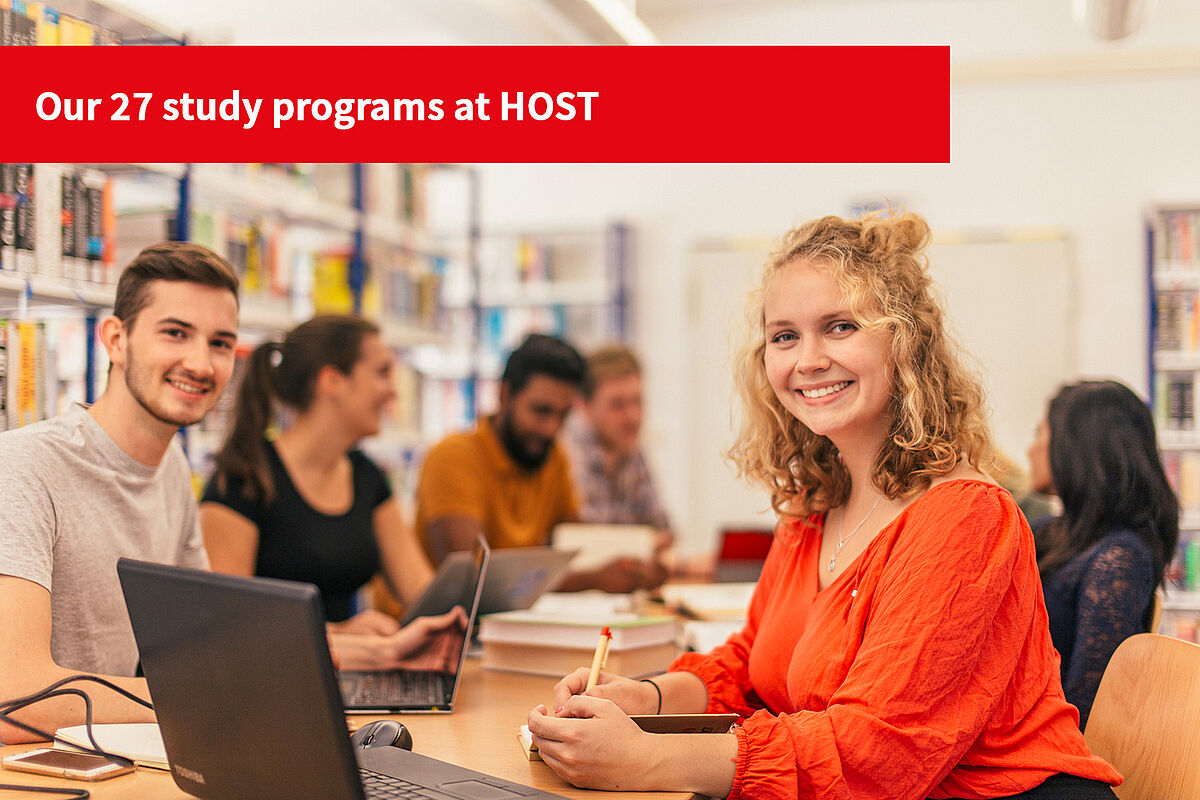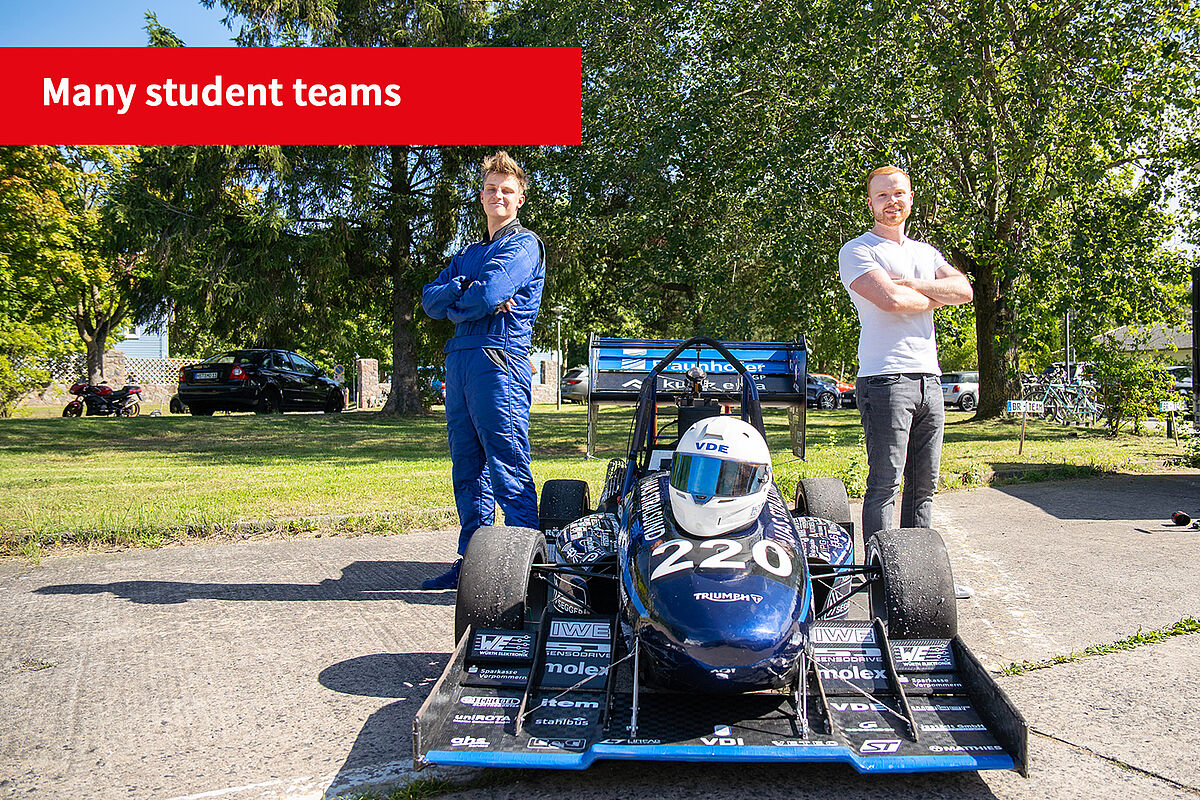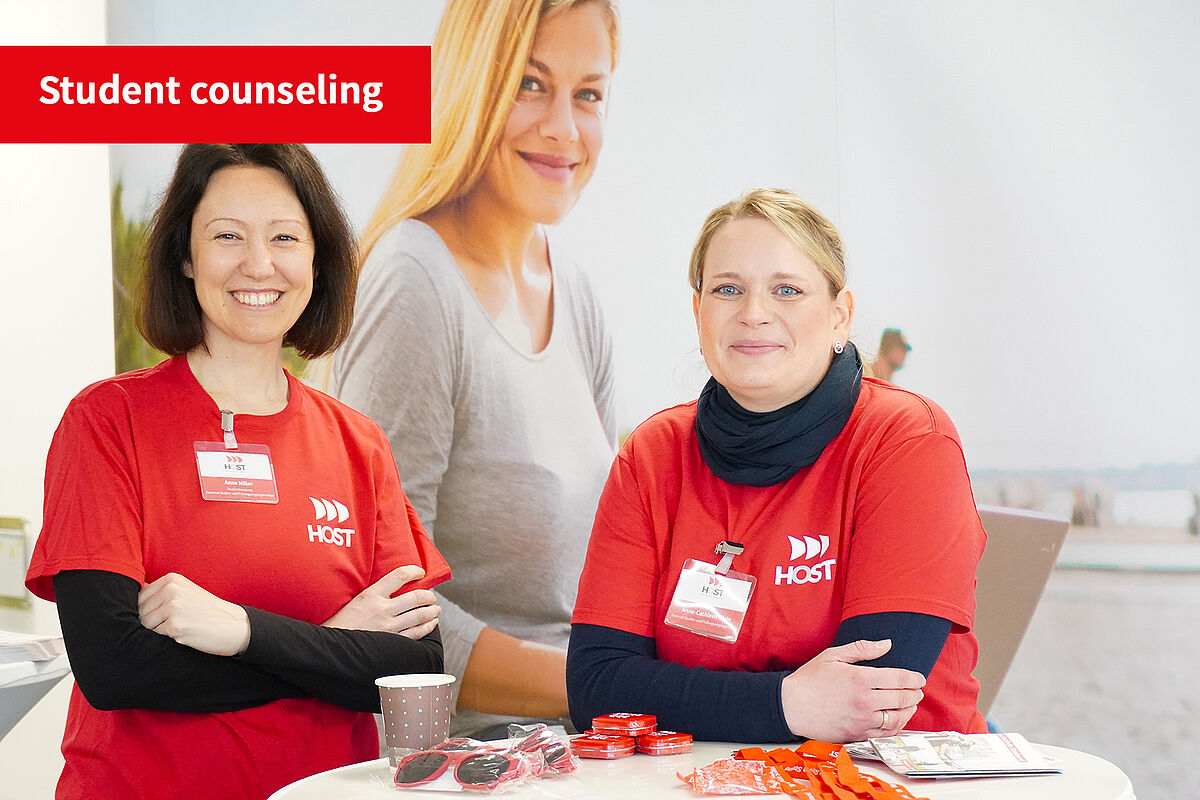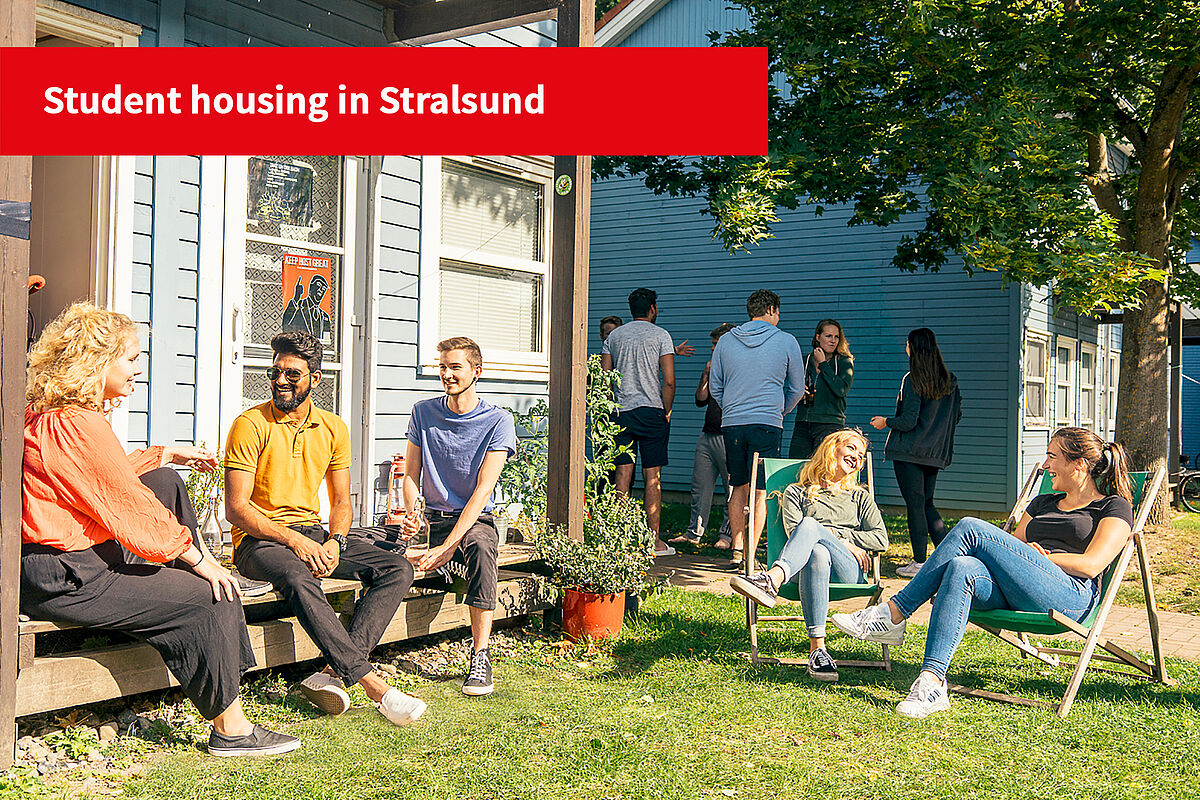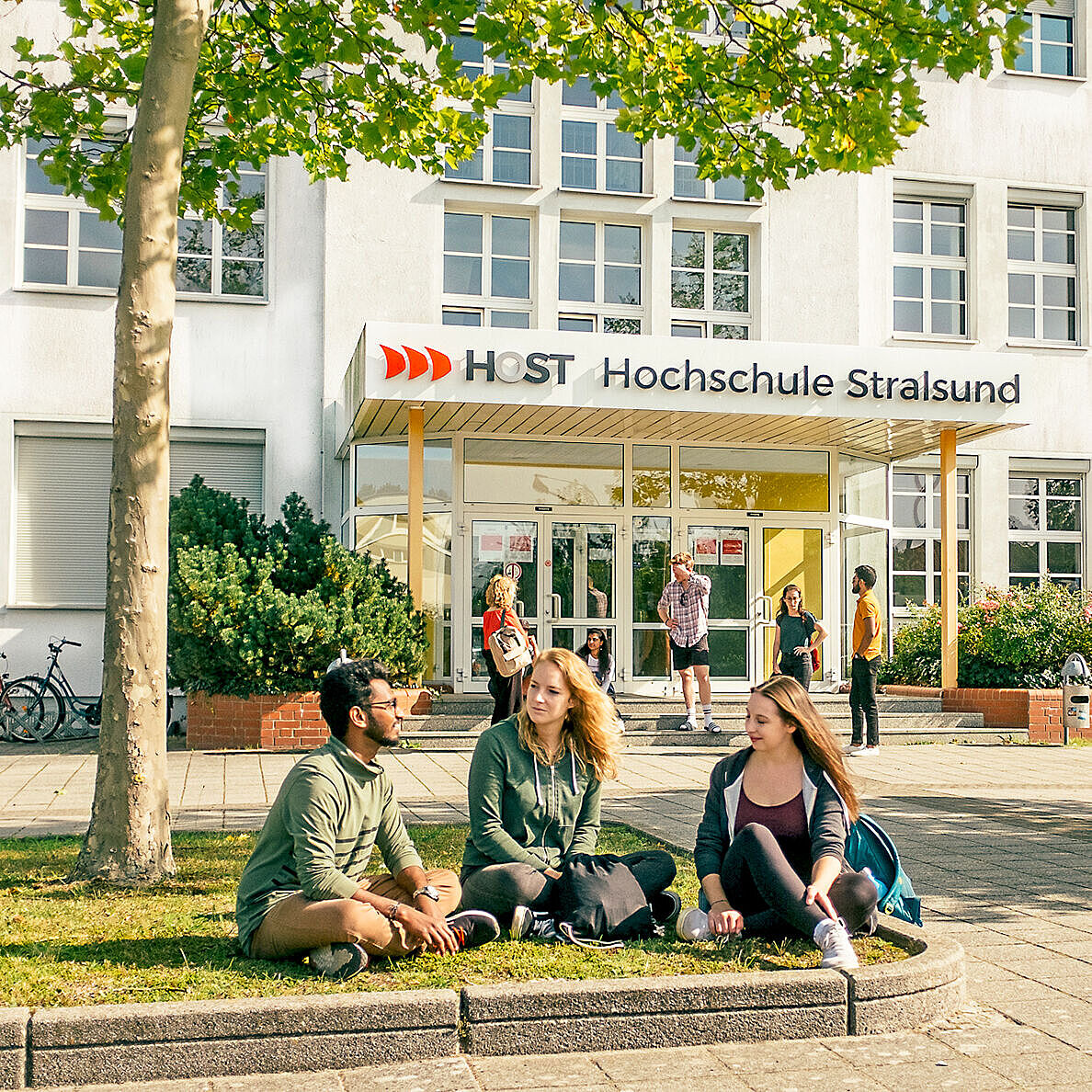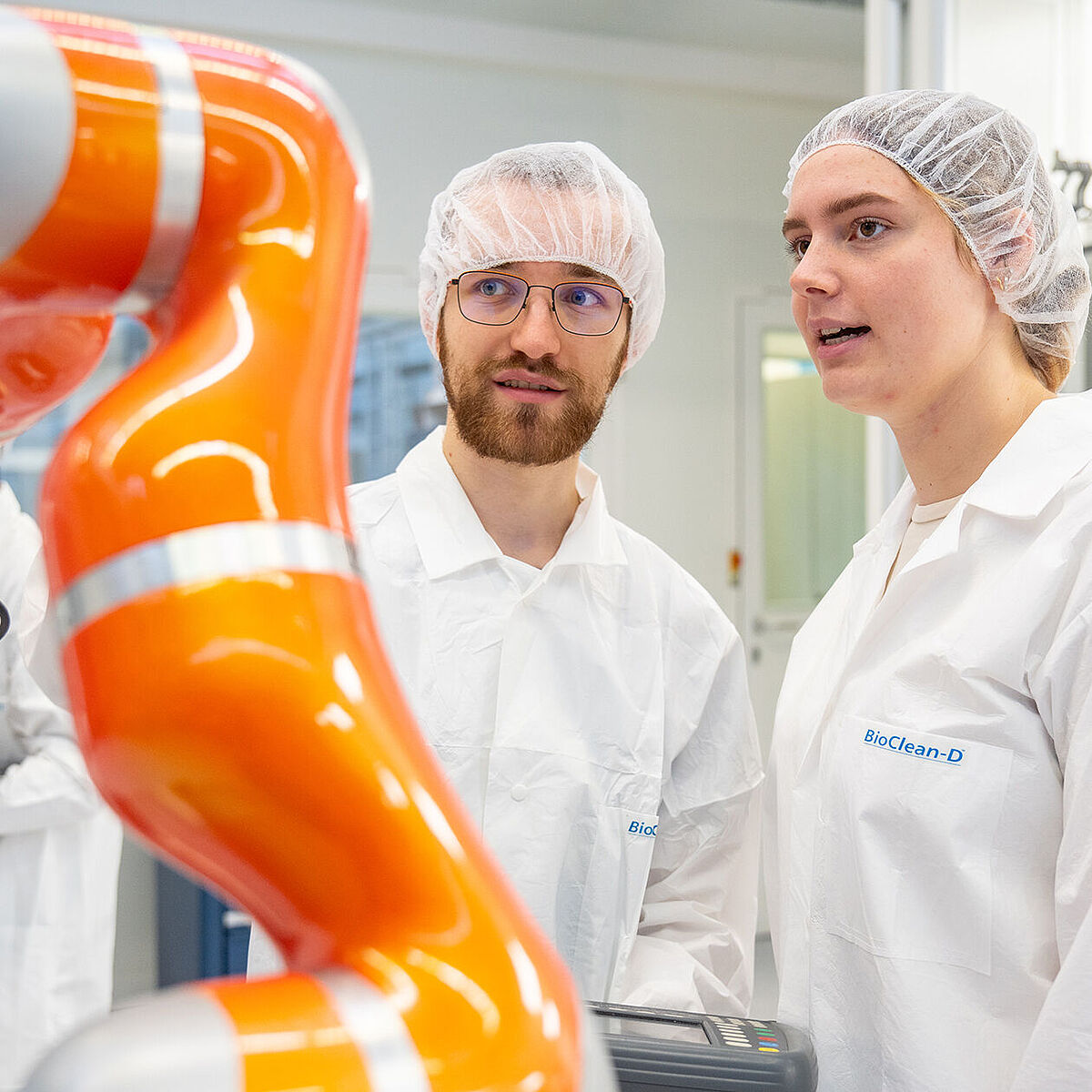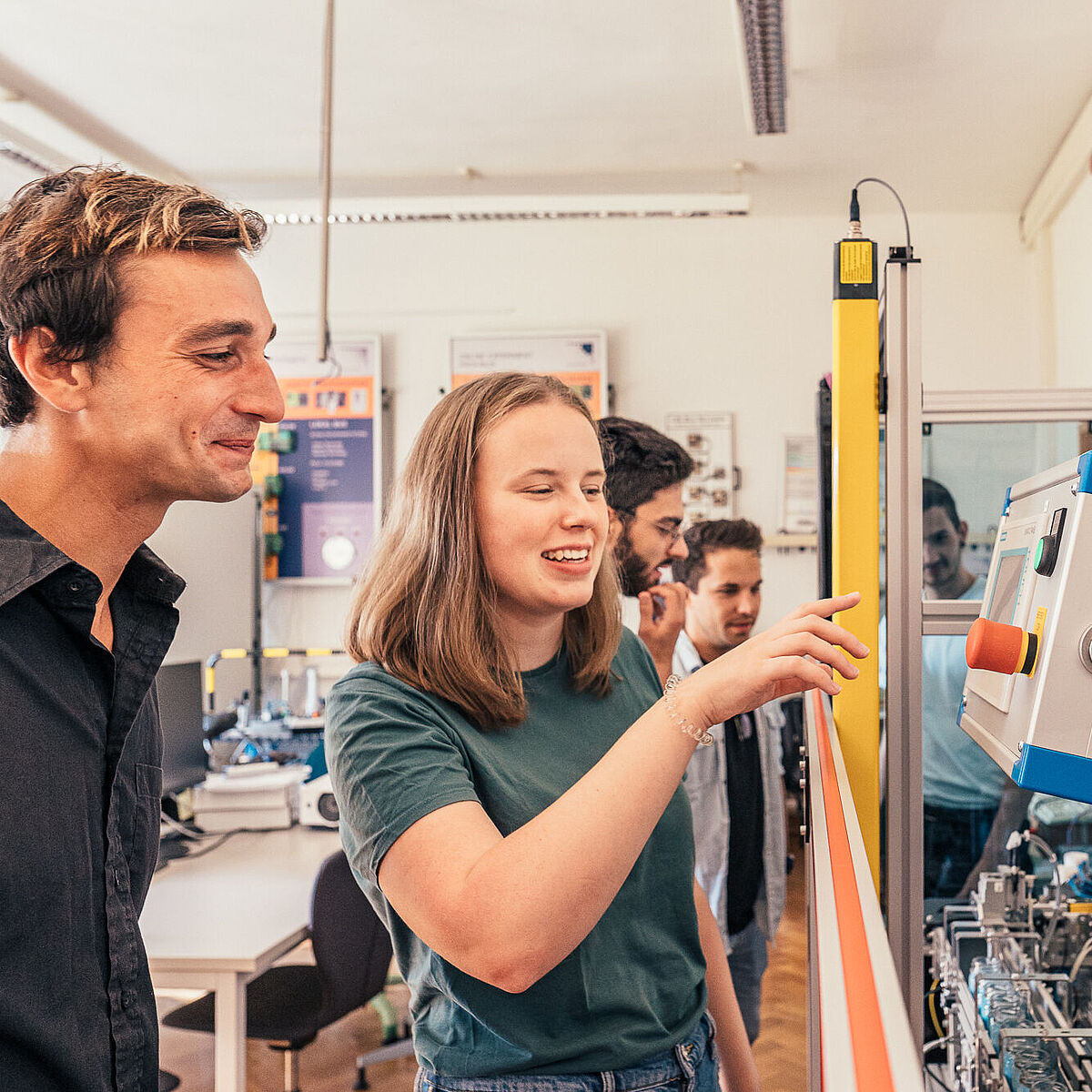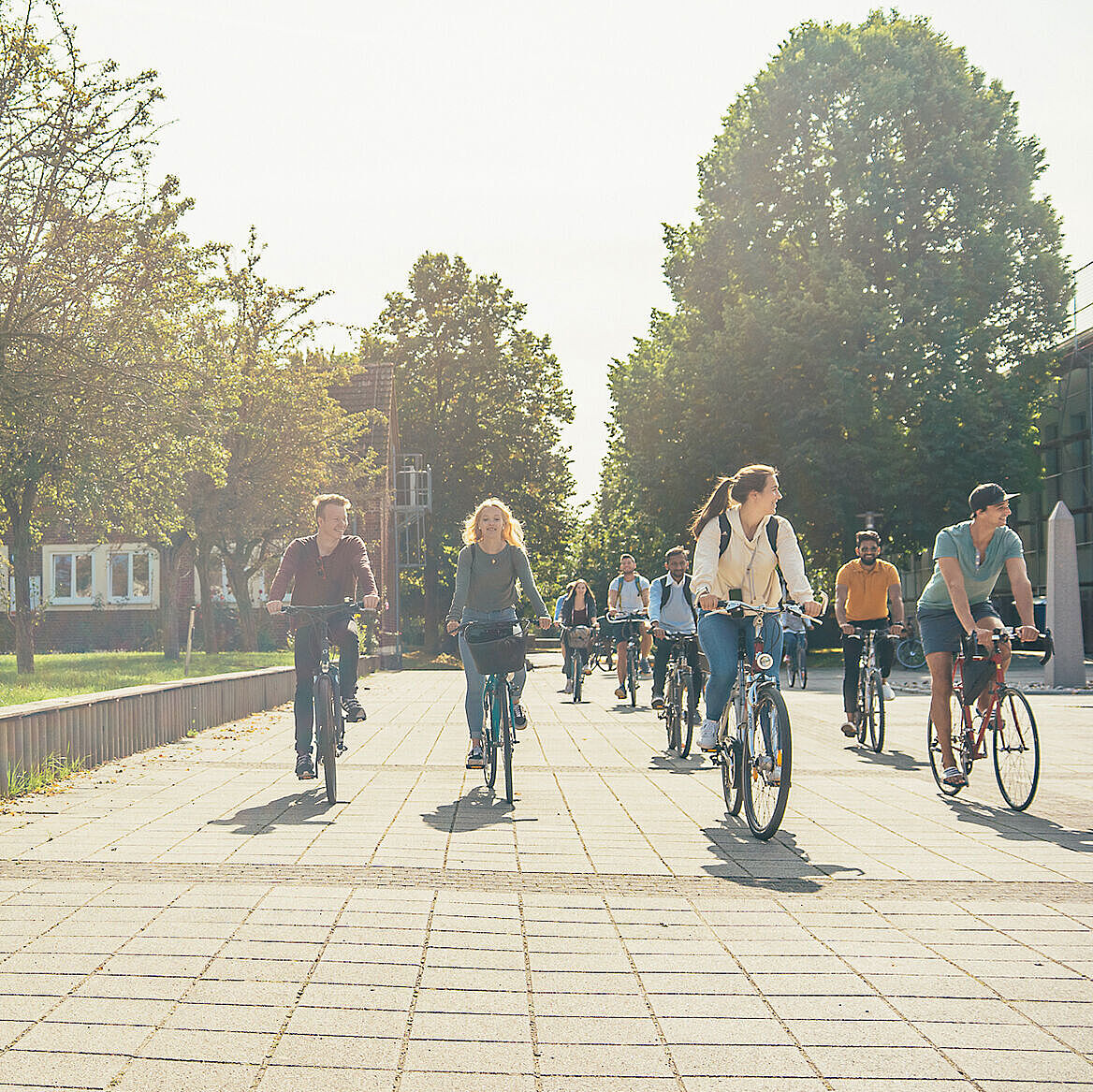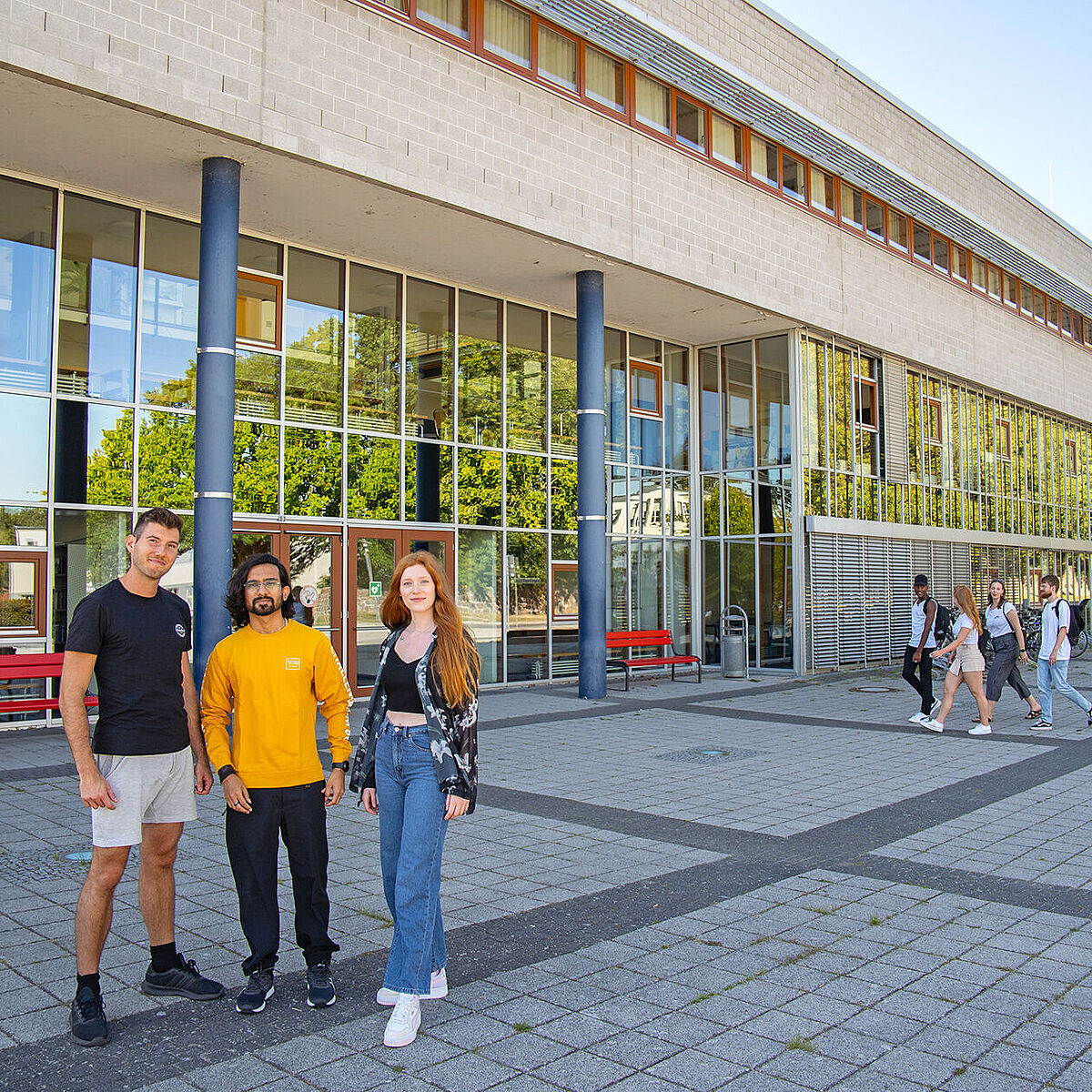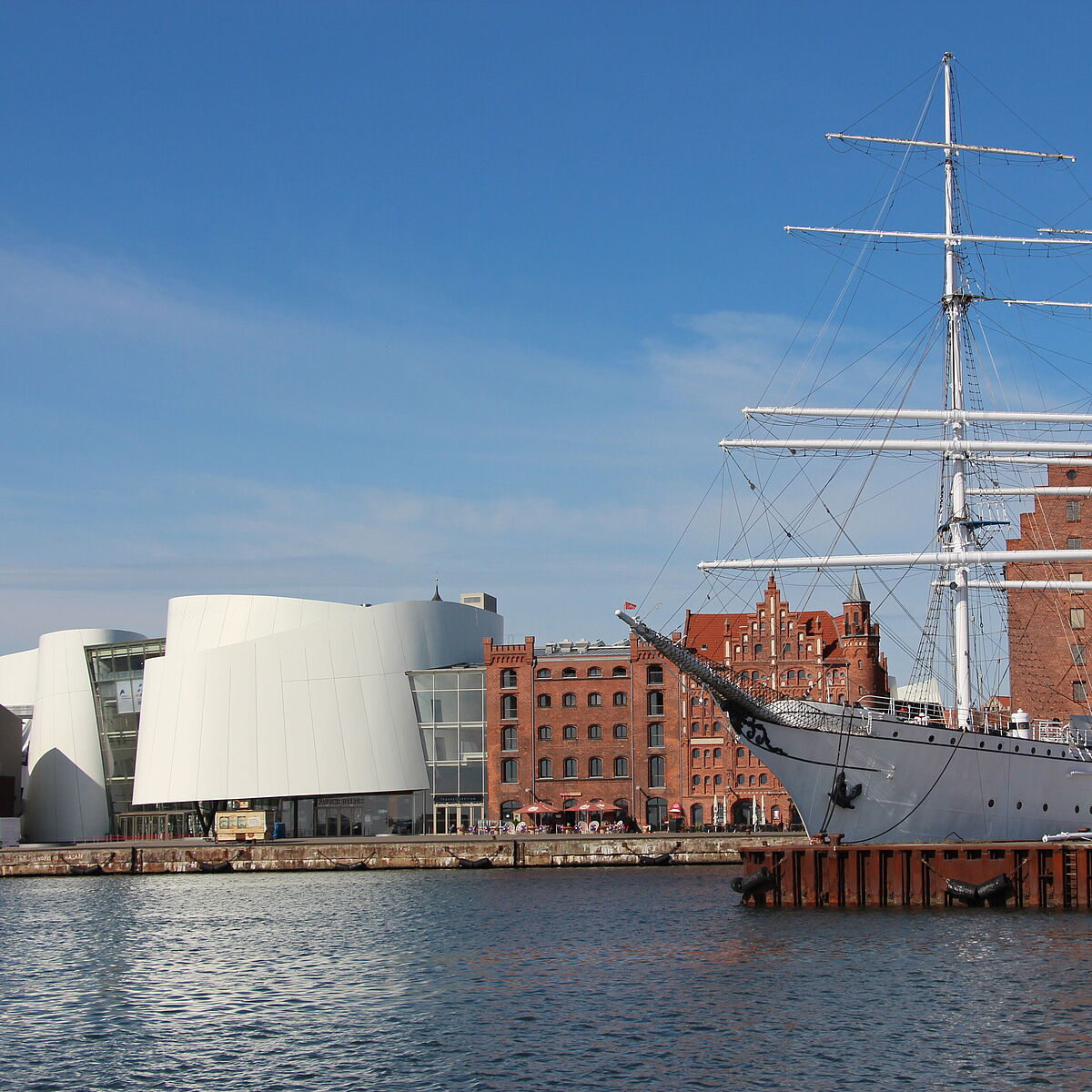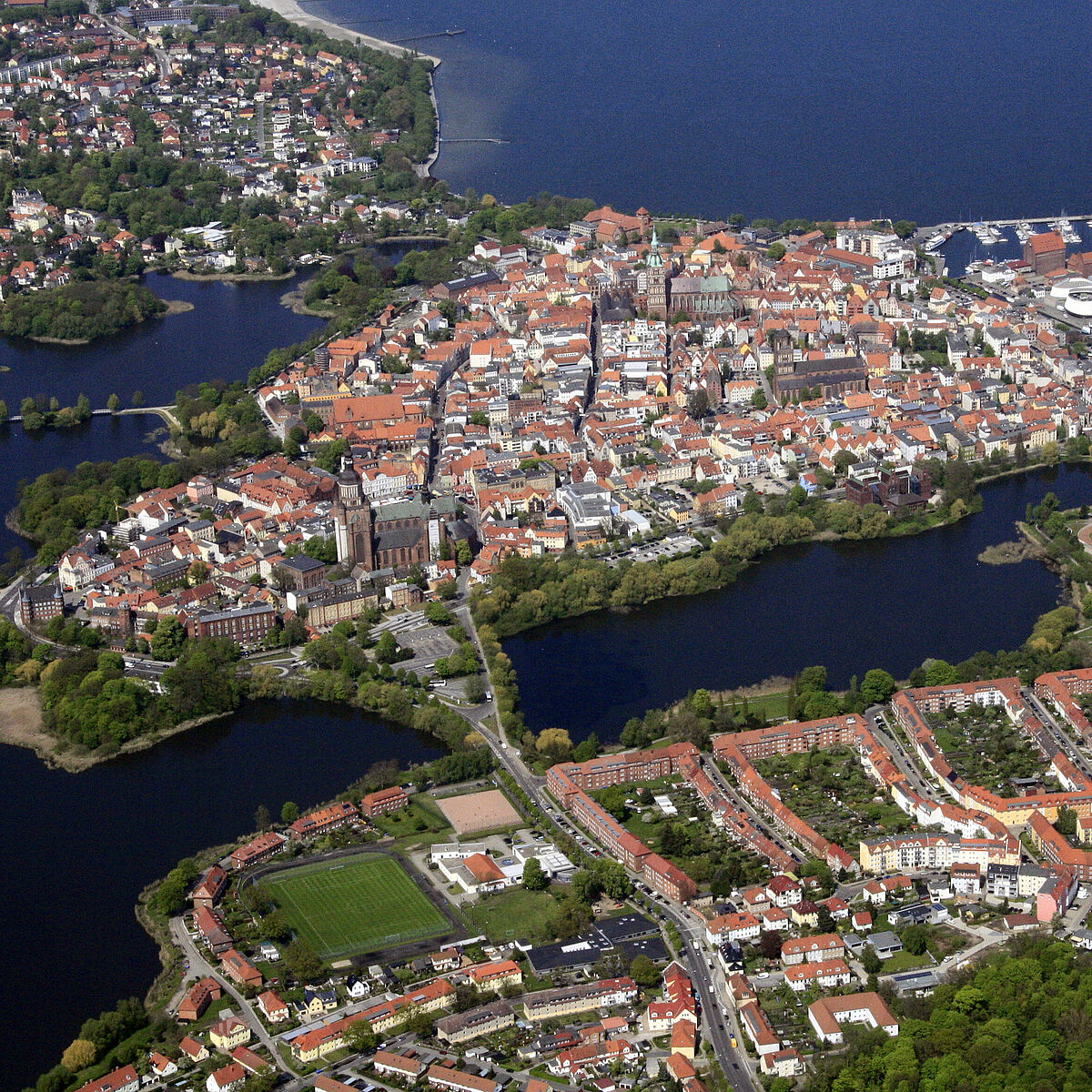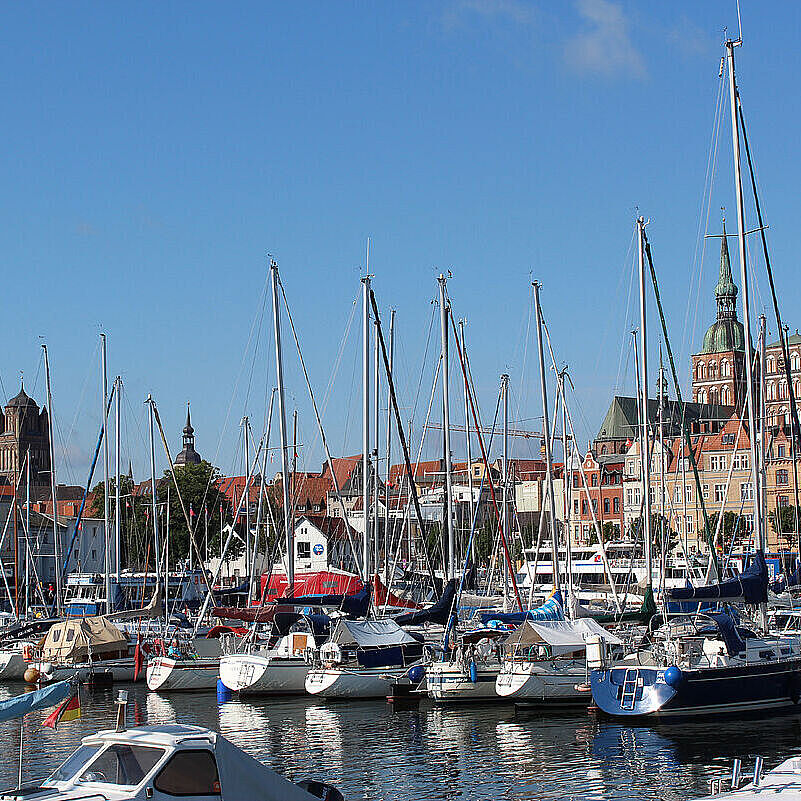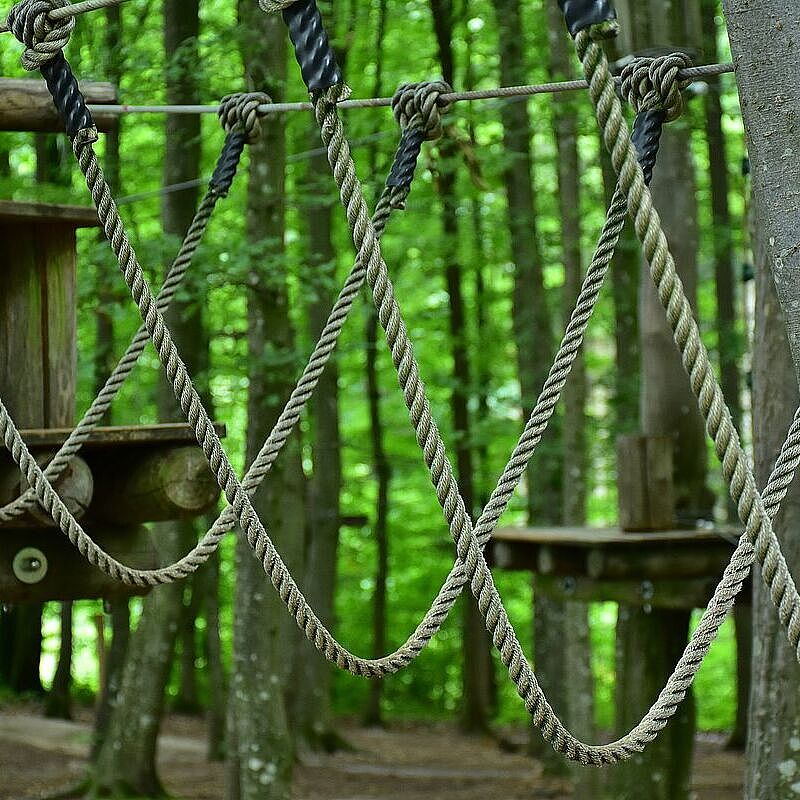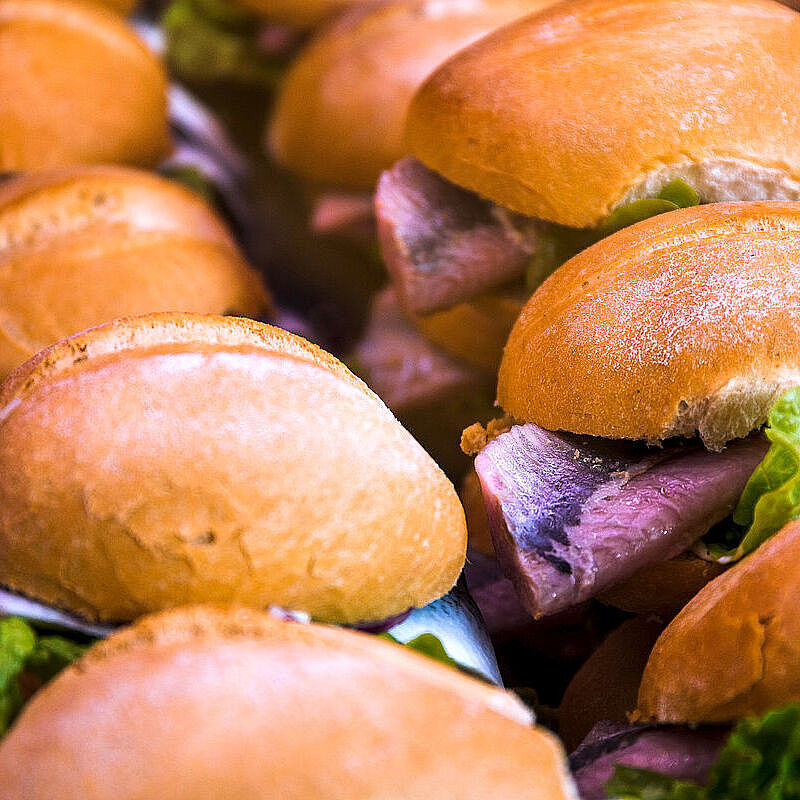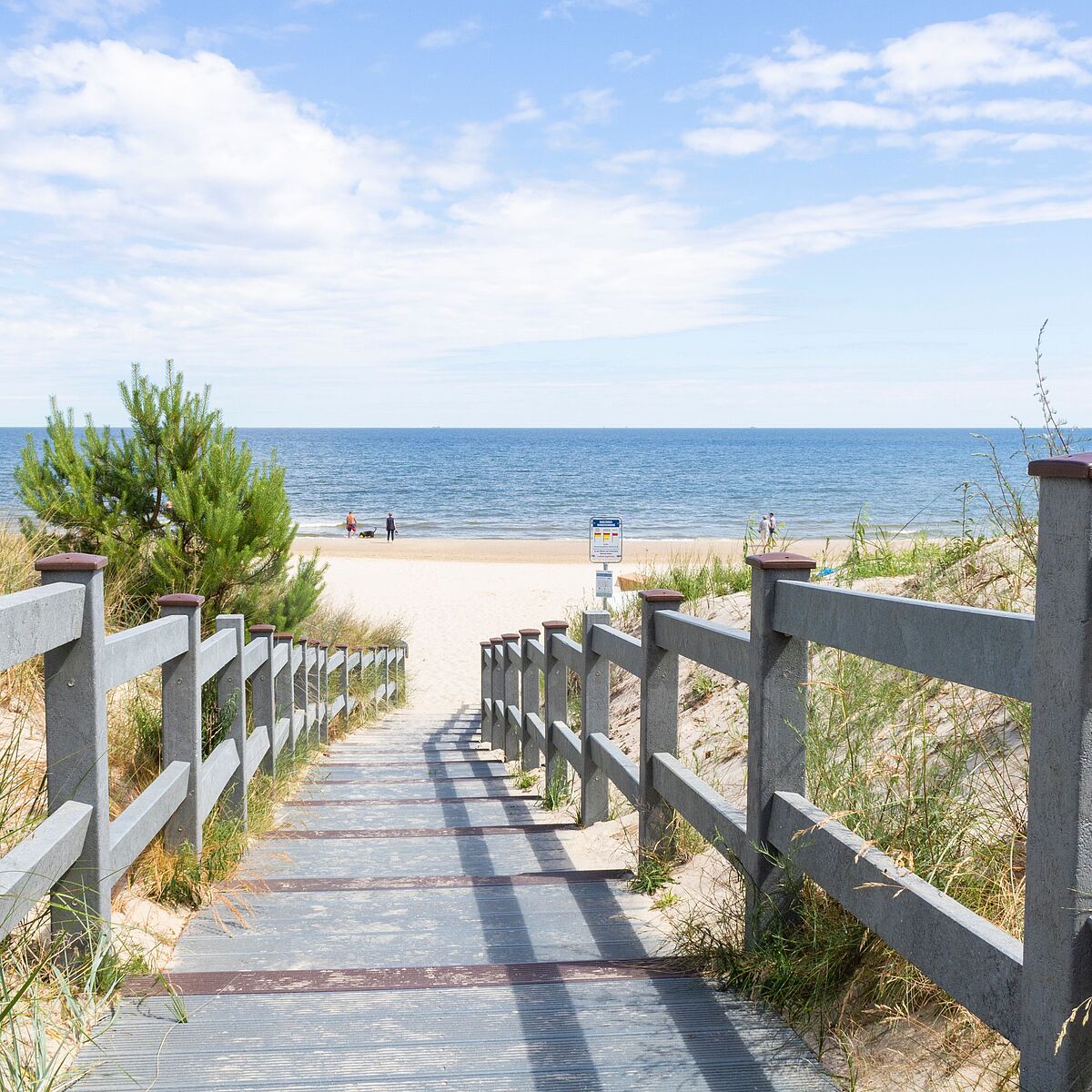Stralsund University of Applied Sciences is looking forward to meeting you!
What to study? And where to study? Not easy questions. Only you can answer the question of what you want to study. We can help you answer the question of where to study: at Stralsund University of Applied Sciences.
Stralsund University of Applied Sciences is a young and innovative campus university with a technical and economic profile. Future-oriented degree programmes, strong cooperation with companies and an excellent student-to-staff ratio offer around 1,800 students the ideal conditions for successful studies.
Join us for a secure and strengthened future!
Small groups
There are no large lectures at Stralsund University of Applied Sciences. You learn in small groups. This keeps you on the ball, your questions are heard and your achievements are recognised. You are taken along instead of being left behind. This is more promising and good for teamwork.
Practical relevance
As a university of applied sciences, HOST lives and breathes practical relevance - in project work, co-operations and company-financed studies. Why? Because we take you seriously, because we think that what you can contribute is valuable and because you can learn better if you know what you are doing it for and have a real connection to it.
Sustainability
It's a long road, but we're travelling it. We are part of the nationwide project "Zukunftsforum klimafreundliche Hochschulen" and sustainability is also a topic in our degree programmes, whether in tourism or renewable energies.
Support
Sometimes you need support in life and that's ok! Whether it's professors, student counselling or AStA - there are contact persons at the university who are happy to help when things get stuck.
International Campus
The academic world is becoming increasingly networked and international. We are part of this. We have students from over 55 nationalities, offer international degree programmes, internships abroad, double degree programmes, organise international intensive programmes, have a lively International Office and a Language Centre.
Living in the Hanseatic city of Stralsund
Just arrived in Stralsund and still a green herring? Or fancy studying with really good career prospects in a region with sun, water and waves? Then you'll find lots of information on culture and leisure activities here.
The Hanseatic city
Okay, the warning up front: if you move to Stralsund, you might very well not want to leave - the flair of a Hanseatic city, beach, harbour, city centre and that holiday feeling make it easy to fall in love with Stralsund. It's not a city that rolls over you, but a city to live in, that carries you like waves and wind. Stralsund's old town has also been a UNESCO World Heritage Site since 2002 - and rightly so.
Leisure activities
The leisure facilities in Stralsund are unbeatable: Beach volleyball, sailing, diving, SUP, football, jogging on the beach - there is no shortage of sports activities and options here. Concerts, beach parties, theatre, blockbusters in the CineStar and alternative films in the arthouse cinema round off the offer.
Eating, drinking and partying
Stralsund is said to not only have the best fish sandwiches, but also the funniest service. Here you will find fine and fast food for the palate from all over the world. During the day, people meet up in the numerous bistros, restaurants and cafés. In the evening, students stroll along with fishermen and tourists through the new and old pubs and bars of the Hanseatic city of Stralsund.
Nature
The Hanseatic city of Stralsund is located on the Baltic Sea off the popular holiday island of Rügen and with a direct boat connection to the picturesque, author-free island of Hiddensee. The Hanseatic city is surrounded on the landward side by lakes, meadows and forests, where you can enjoy the many hours of sunshine. On excursions into the surrounding area, you can discover animal and plant species that have long since disappeared elsewhere in Germany.


